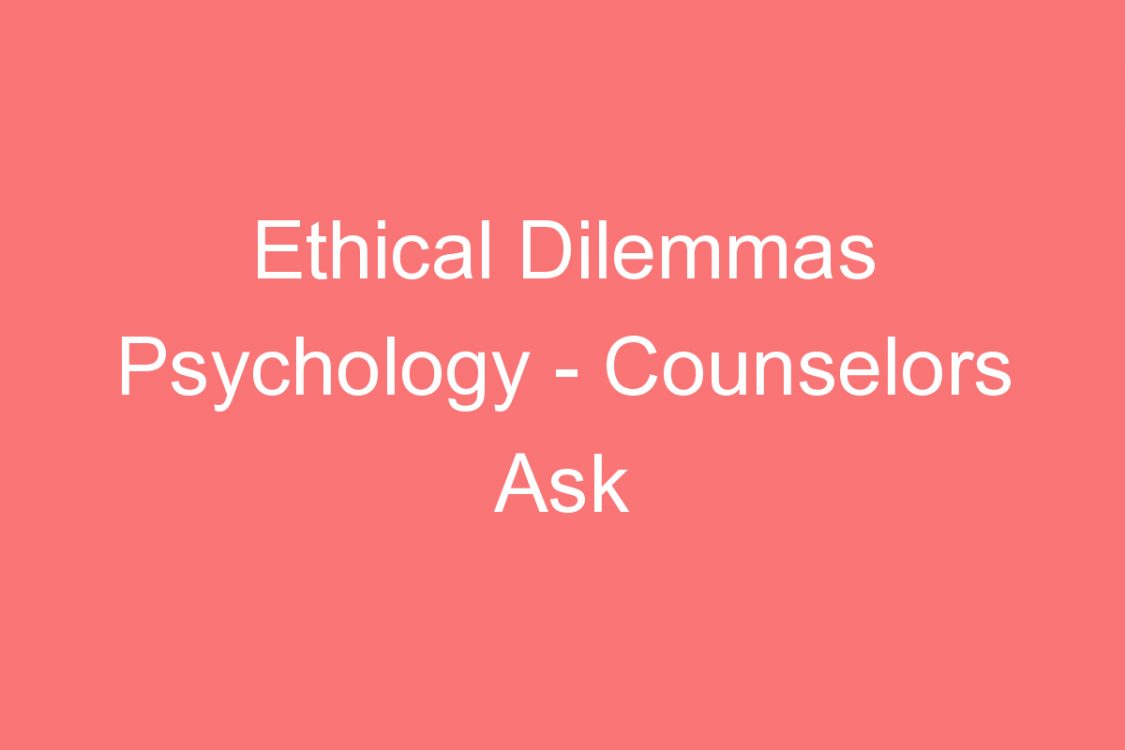As a first step, she enrolled on and completed a business start-up course, where she was advised to set up a website and to include testimonials from her current clients at her placement. However Sherifa has just seen a conversation on a social networking site where some members have suggested that this is not wise. What are the ethical issues involved and what should Sherifa do?
At first glance it is easy to empathise with Sherifa and support her. Considering the struggles she had to go through in this profession, setting up such a website would earn her brownie points in setting up own practice. But if we look closer into the matter getting such a testimonial from clients may not be such a smart move after all. Below discussed are some of the ethical issues involved.
Read more: Psychology Theories, Techniques, Components and Experiments Of Past
APA ethical guideline 5.05 – testimonials
‘Psychologists who engage others to create or place public statements that promote their professional practice, products, or activities retain professional responsibility for such statements’.
Similarly, America counselling association, section 3 – professional responsibility; C.3.b. Testimonials, states-
‘Counselors who use testimonials do not solicit them from current clients, former clients, or any other persons who may be vulnerable to undue influence. Counselors discuss with clients the implications of and obtain permission for the use of any testimonial.’
In short- she will have to be extremely critical of whatever her clients say, because she cannot afford of them being generous about her!
Read More: Ethical Dilemmas And Issues In Social Work Part Two: Case Study
Similar point has been supported by guideline 5.04 Media Presentations-
When psychologists provide public advice or comment via print, Internet, or other electronic transmission, they take precautions to ensure that statements,
(1) Are based on their professional knowledge, training, or experience in accord with appropriate psychological literature and practice;
(2) Are otherwise consistent with this Ethics Code; and
(3) Do not indicate that a professional relationship has been established with the recipient
Thus, even if Sherifa can ensure that the client’s confidentiality is intact in the website, obtaining such a public statement is a matter of huge risk.
According to APA guideline 5.02 – statements by others and ACA C.3.c. Statements by Others-
‘When feasible, counselors make reasonable efforts to ensure that statements made by others about them or about the counselling profession are accurate. Counselors do not use counselling, teaching, training, or supervisory relationships to promote their products or training events in a manner that is deceptive or would exert undue influence on individuals who may be vulnerable
However, counselor educators may adopt textbooks they have authored for instructional purposes’
Also, keeping aside the legal obligations, ethically, Psychologists do not solicit testimonials from current therapy clients as their particular circumstances are clearly vulnerable to undue influence.
Thus in my opinion she should not take the advice of the business start-up course and set up such a website; because in this profession, we are not just selling our services in lieu of profits!
Read more: Psychology, DSM, World war, great depression and philosophy
Author: Pragya Shah

